Why don’t window cleaners use soap anymore? You’ve probably noticed your window cleaner rocking up with just water and a long extension pole — no suds, no foam, just a confident look. You’re not alone in wondering why. It’s a question we get all the time, and fair enough too. Most folks assume we’ve either gone lazy or forgotten our gear.
Those reasons aren’t just about what’s trendy in the cleaning world. They’re about what works best, what’s safer for your glass windows and what keeps your view crisp longer.
Let’s break it down. We’re a crew of experienced window cleaners who’ve been scrubbing dirty windows, cleaning window sills and tackling window panes in all sorts of weather. We know what we’re talking about.
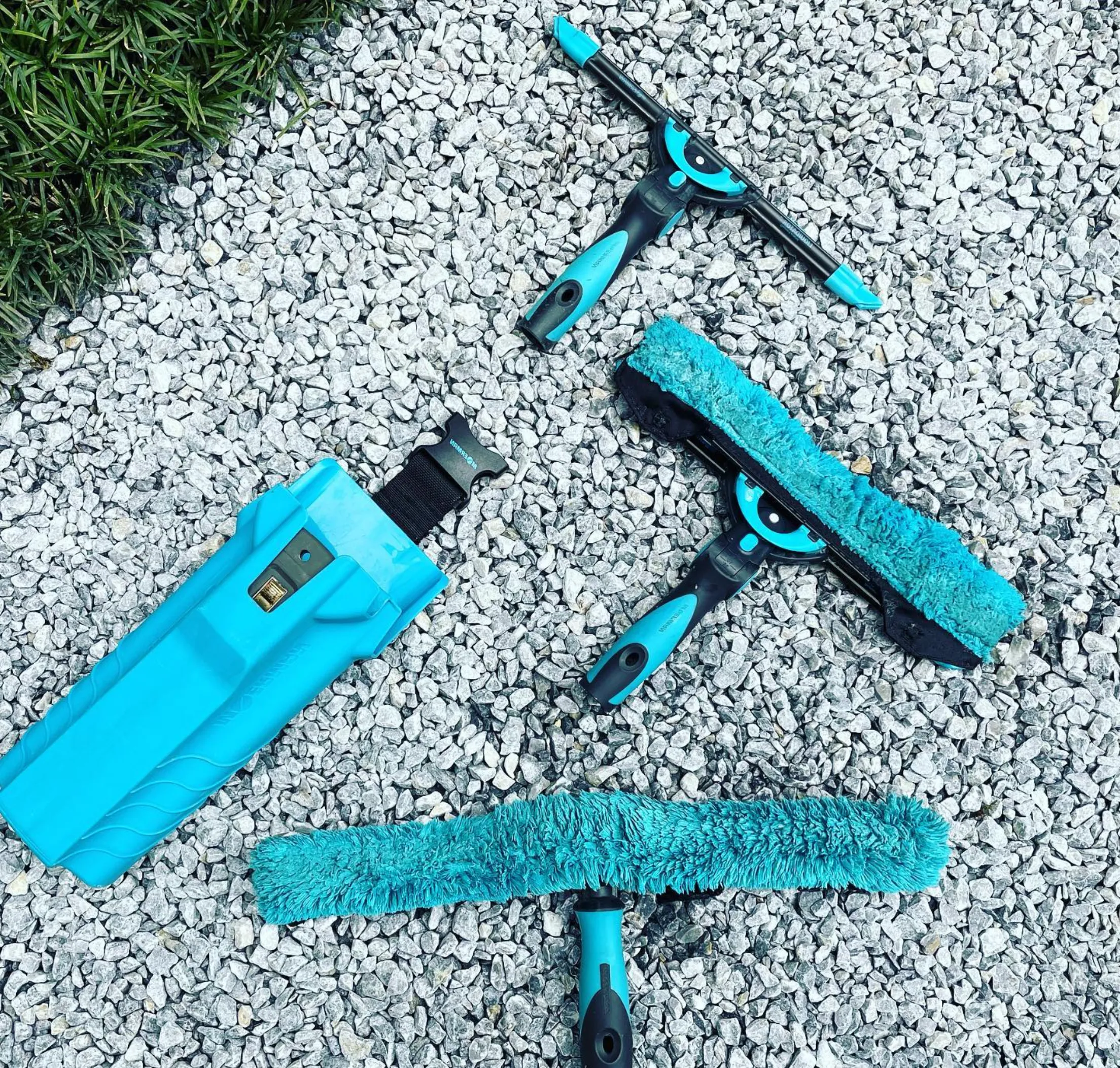
The Problem with Soap
Soap is great for dishes and scrubbing mud off your ute. But when it comes to cleaning windows, it’s not always your mate. Standard dish soap and window cleaning soaps can leave behind a filmy residue. That residue attracts dust, pollen and grime quicker than a mozzie finds your leg in summer.
We’ve seen our fair share of streaky windows from DIY jobs. Too much detergent or washing-up liquid is usually the culprit. Add in hard water or tap water — and you’ve got a recipe for chalky marks and frustration. Rinsing becomes a real pain when you’ve got too much excess water and dirty water foaming up your bucket.
We’ve cleaned windows that were smeared with leftover soap that had cooked onto the exterior windows in the sun. Trust us, the scrubbing wasn’t worth the smell of basic dish soap.
Pure Water Technology
Welcome to the age of pure water window cleaning — no suds, no gimmicks, just de-ionised or reverse osmosis-treated H2O doing the heavy lifting. Here’s how it works:
- We filter clean water through a multi-stage purification system (removing minerals, salts and additives from water).
- That water then flows through our water-fed pole system, straight to the outdoor windows.
- Because it’s pure, it leaves zero residue — no streaks, no water spots, no soap scum.
And because there’s no chemical trail, windows stay cleaner for longer. Dust and particles have nothing to cling to. It’s magic — well, science — but it feels like magic when those windows dry to a spotless finish.
Bonus? No ladders needed for most jobs. Our poles reach up to three storeys, keeping our feet on the ground — and your hedges free from boot prints.
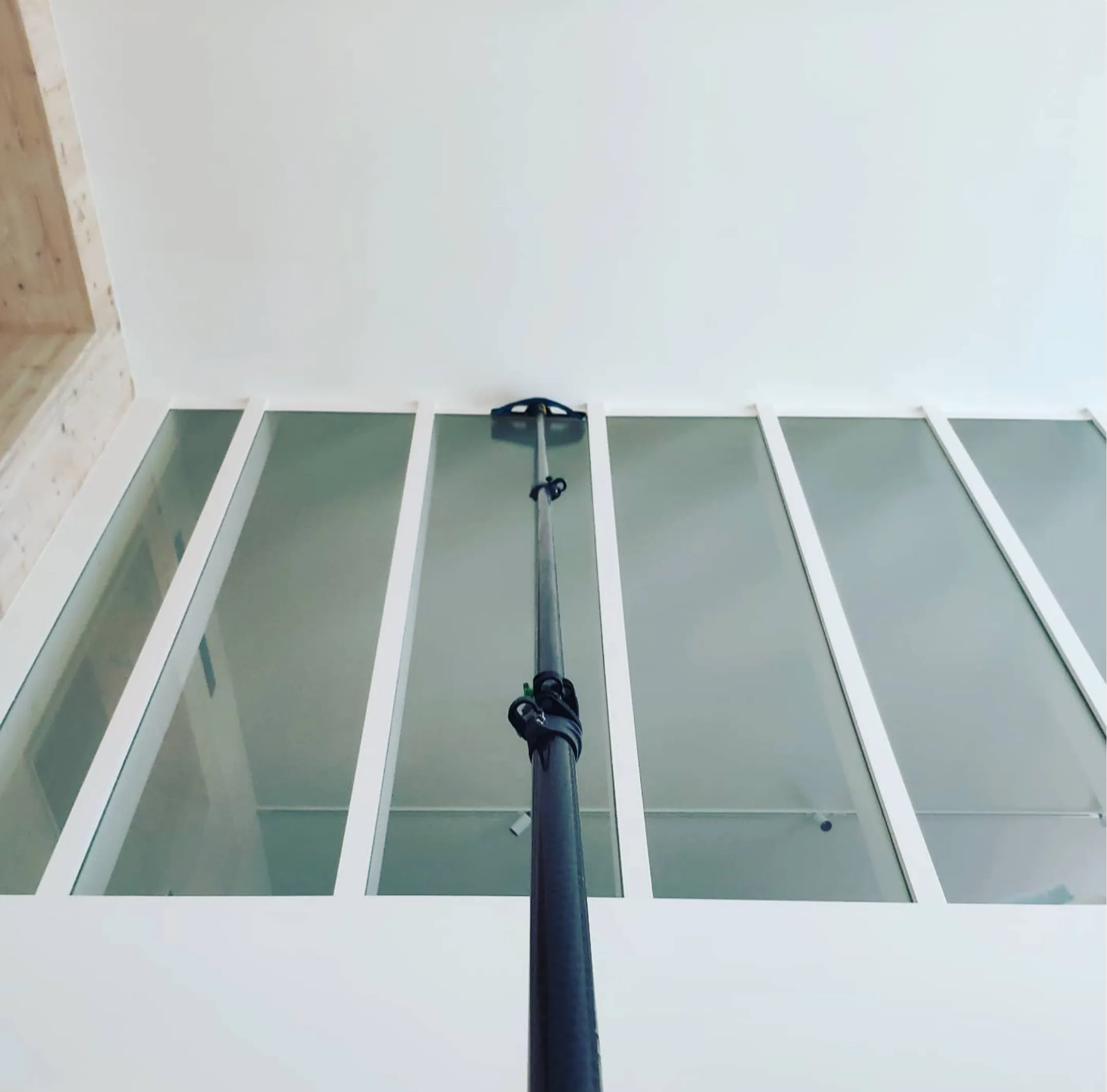
When We Do Use Soap
Now, we’re not soap haters. There are times when a splash of the good stuff — like mild dish soap or special cleaning liquids — is necessary:
- Greasy café windows with built-up water stains and cooking fumes
- Post-construction cleans with tough stains like paint or concrete residue
- Sliding doors with sunscreen smears, bird droppings or fingerprints
When we do, we use purpose-made window cleaning solutions — not your random products from under the sink. These are low-residue, safe glass cleaners that won’t harm coatings or window screens. We go easy with the dosage — no foam parties on our watch.
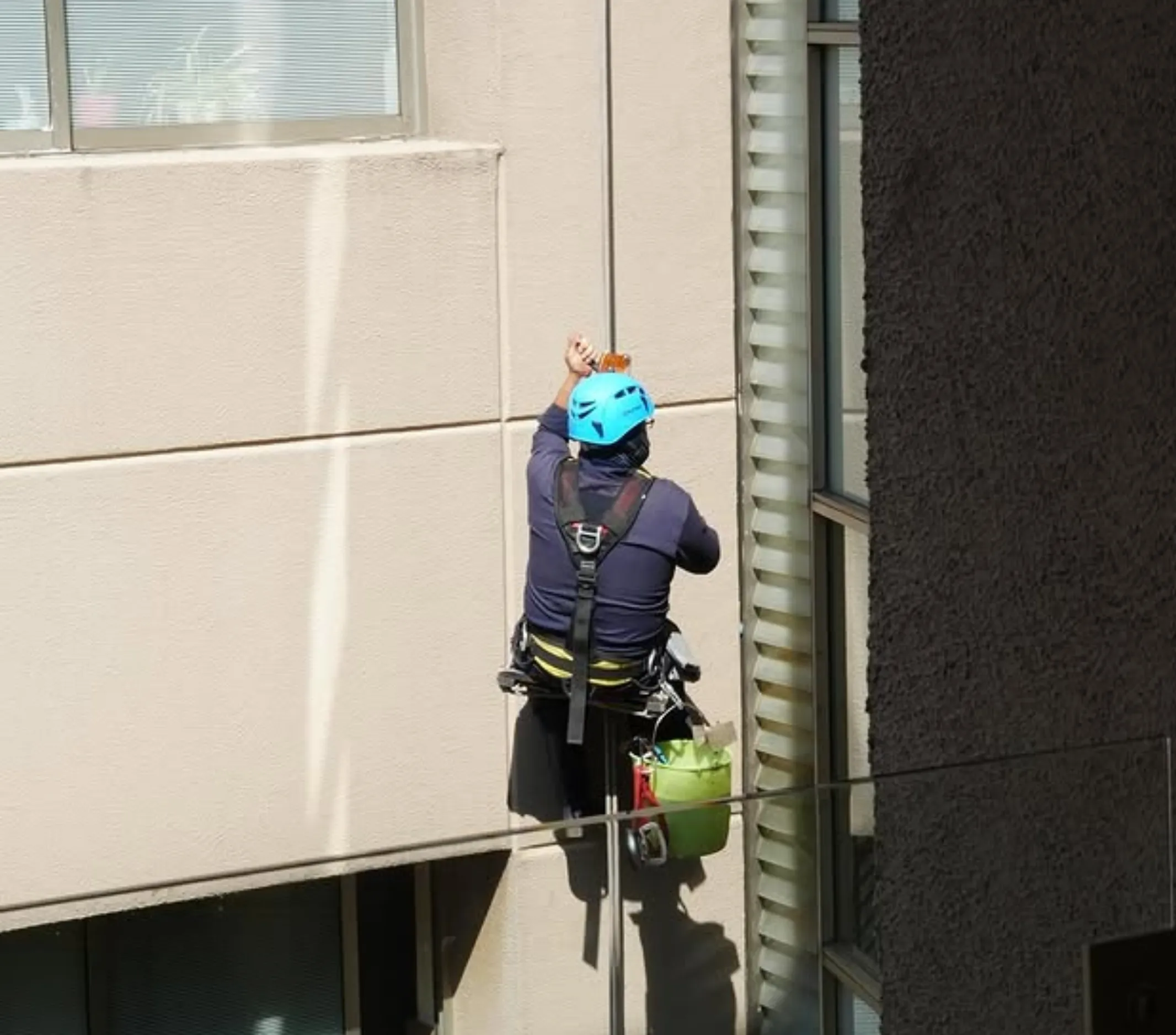
Tools That Get the Job Done
Here’s what you’ll find in our ute instead of a soapy window cleaning bucket:
- Pure water system: The backbone — turns plain water into a grime-fighting machine.
- Water-fed poles: Lightweight and extendable, with a soft bristle brush or brush head combo to clean balcony style windows and picture windows.
- Microfibre cloths & surgical towels: Perfect for detailing window frames, edges and window tracks without leaving lint. We keep window towels separate from general rags.
- Window squeegee rubber blades: The classic for indoor windows — smooth swipe, streak-free results.
- Spray bottle: For small jobs using clean spray bottle mixes like a bit of vinegar with distilled water or white vinegar.
We’re not here to convert the tradies who still love their old ways, but for a modern window cleaning service these tools are the way to go.
Why This Matters for Aussie Homes
From Tassie to the Top End, homes across Australia get salt mist to red dust. The last thing you want is a soap solution making a sticky mess of your glass.
Pure water methods and proper window cleaning supplies are better for:
- Cleaning windows in high-humidity areas without film residue
- Cleaning awkward windows and upstairs windows without scaffolding
- Protecting window sills and coatings from soap residue
- Getting a crystal clear finish with fewer cleans over time
So whether you’ve got awning windows, bathroom mirrors or a bunch of windows facing the dusty street — we’ve got the gear to leave them sparkling.
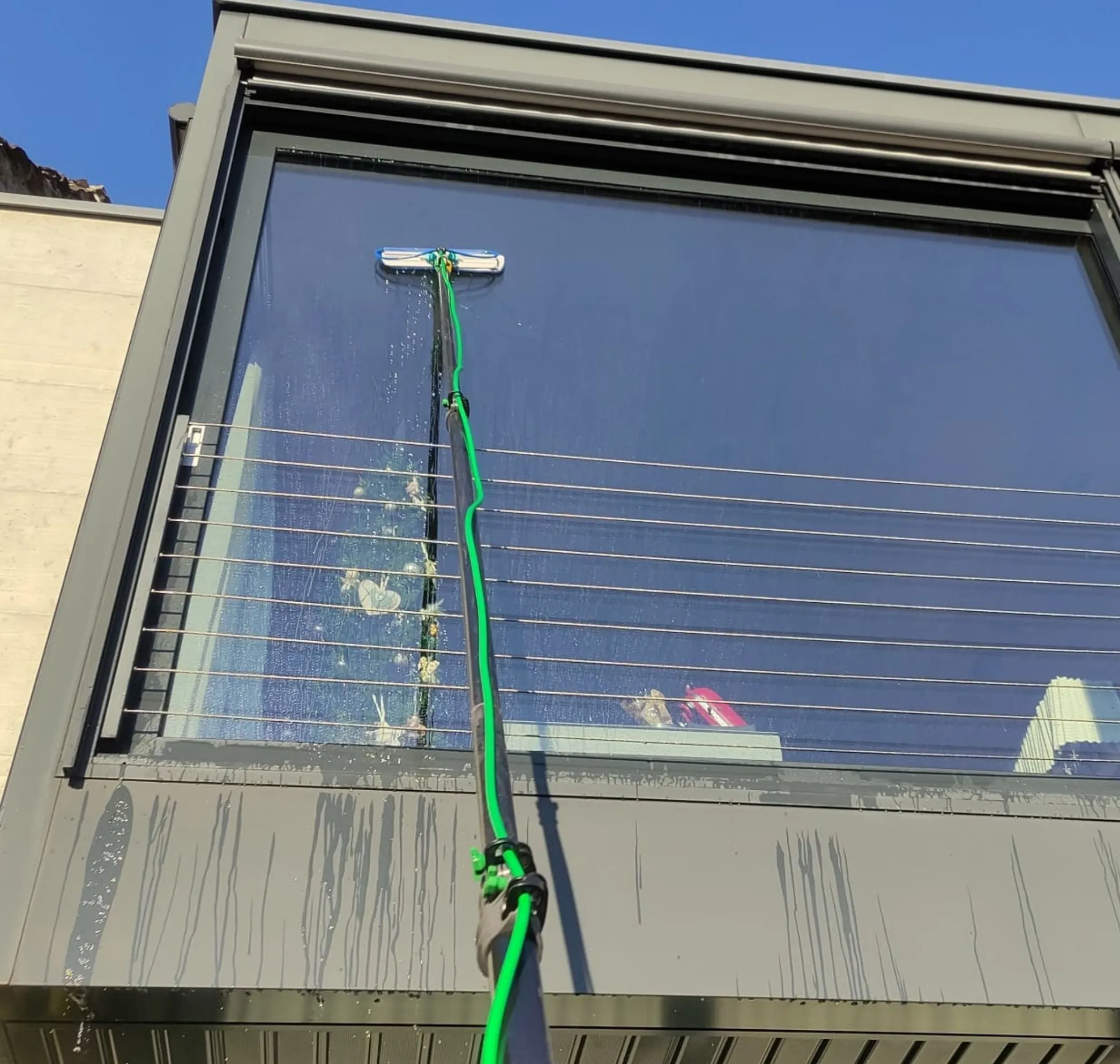
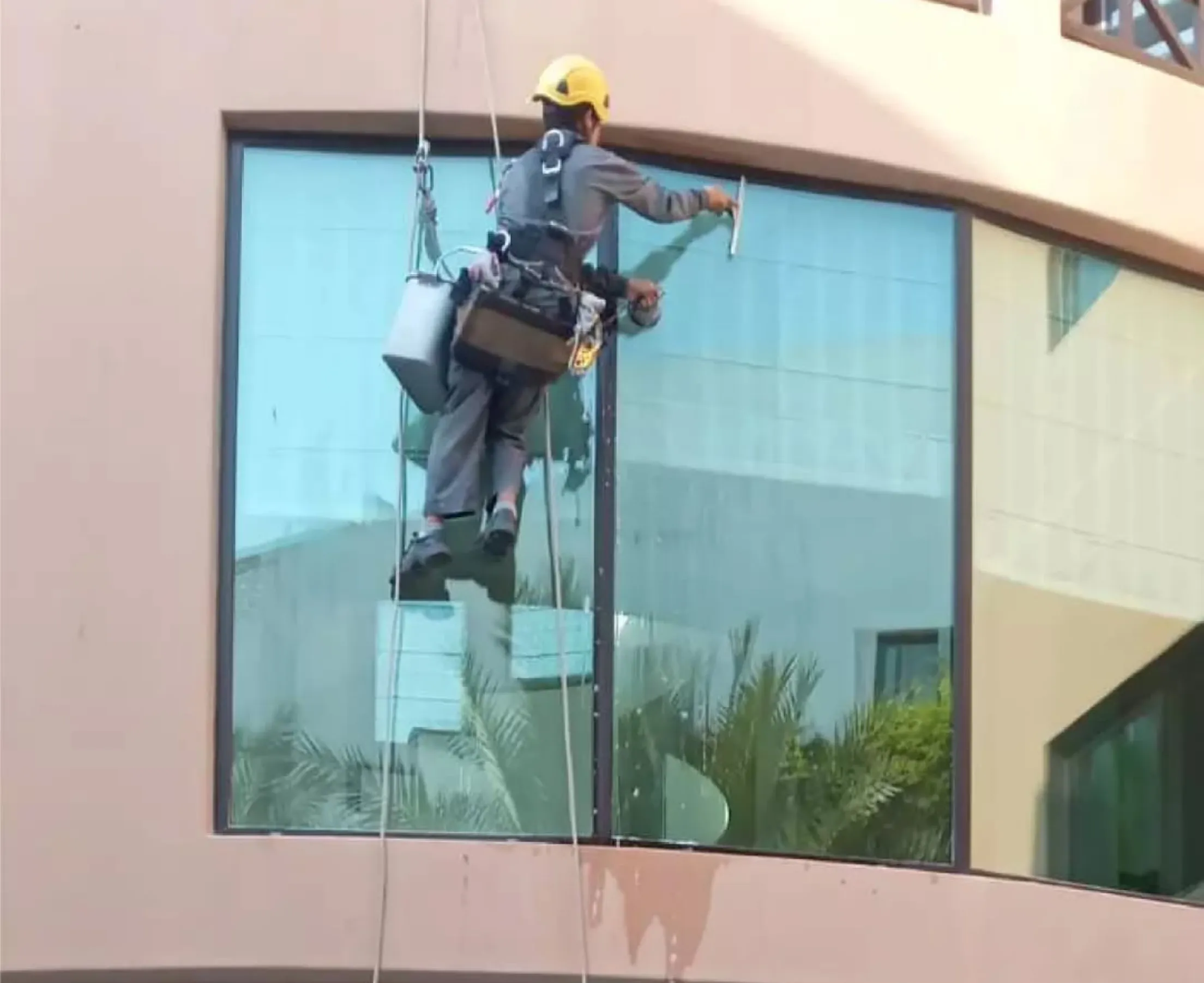
The Environmental Angle
We’re not just after spotless windows — we’re doing our bit for the planet too:
- No random chemicals down your driveway
- No auto detail chemicals in the garden beds
- Less water waste with our efficient tools like the all-purpose extension pole and soft brush combo
- No fabric softener, washing machine rinse cycles or extra additives
We also ditch the harsh stuff. No need for a bristle brush attack when microfibre towel and clean water gets the job done.
The Window Cleaning Melbourne Crew uses smart, soap-free techniques to get a crystal clear finish every time.
Cleaning Myth Busted
Soap’s good for some jobs — but it’s not the answer. A mix of vinegar and water, or even just pure de-ionised water, often cleans better without creating more problems.
Strong isn’t always better. We’ve seen average window cleaners leave streaky marks from using too much dish soap which leaves chalky residue. Real window cleaners know a clean finish is about the method — not just the mix.
Even robotic window cleaner units now use soft solutions, not full-on suds. And remember — even the best blade with water can’t save a job ruined by too many drops per gallon of soap.
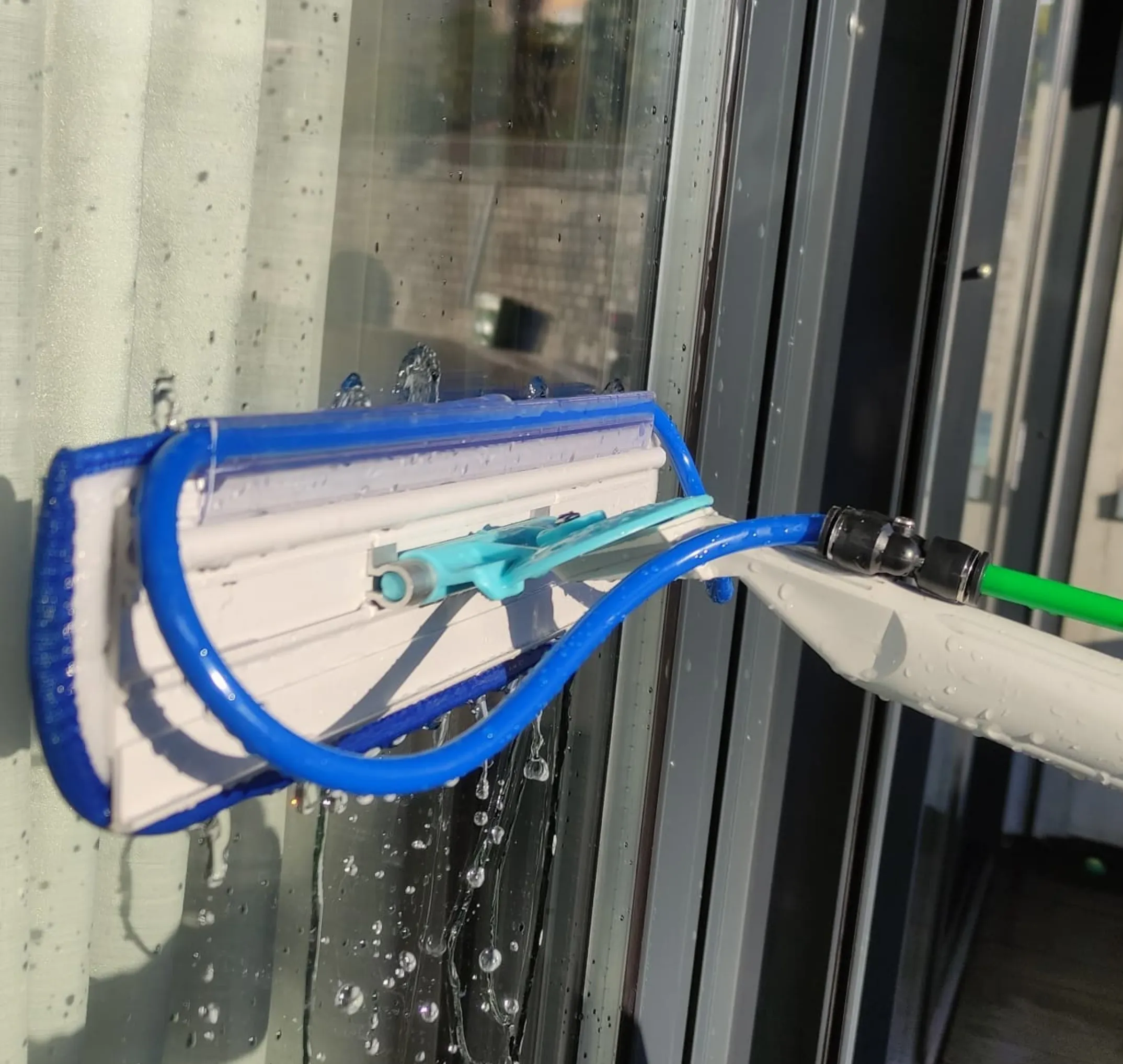
FAQ
Does pure water really clean better than soap?
Yes — especially for exterior windows. It removes grime without filmy residue, using just clean water — often distilled or de-ionised.
What if my windows are really dirty?
We’ll use a soft brush, maybe a bit of dish soap or glass cleaner, then rinse with pure water. It’s about smart combinations — not more chemicals.
Can I just use white vinegar in a spray bottle?
You can, especially for indoor windows or mirrors. A mix of vinegar and warm water works great on glass — just finish with a dry microfiber cloth.
What gear do professionals use?
Expect microfibre cloths, window squeegee rubber, extension poles, water-fed poles and a range of window cleaning tools. No random products, just professional window cleaning equipment.
Can I wash in direct sunlight?
Not ideal. Water dries too fast and leaves water stains. Best to clean in shade or during cooler parts of the day for a perfect finish.






